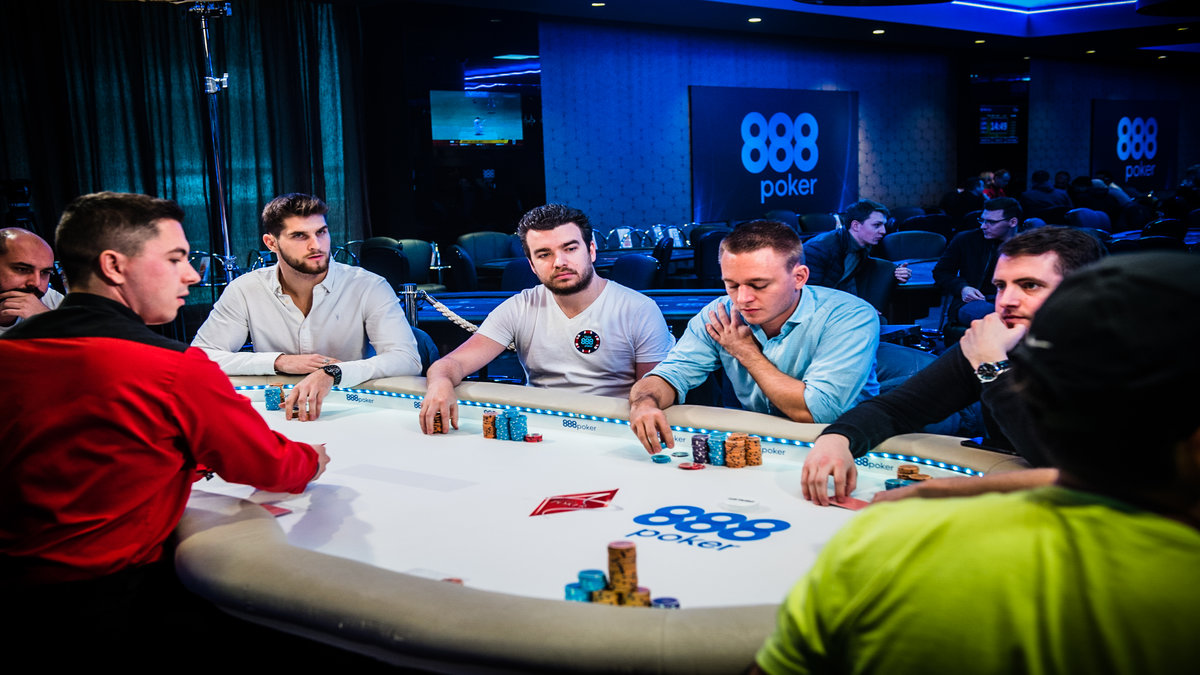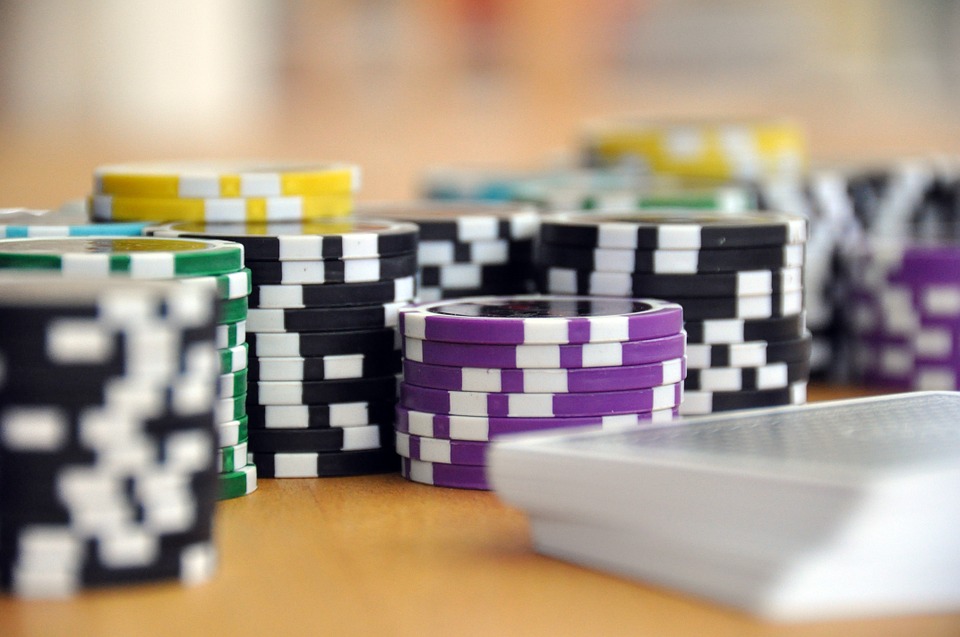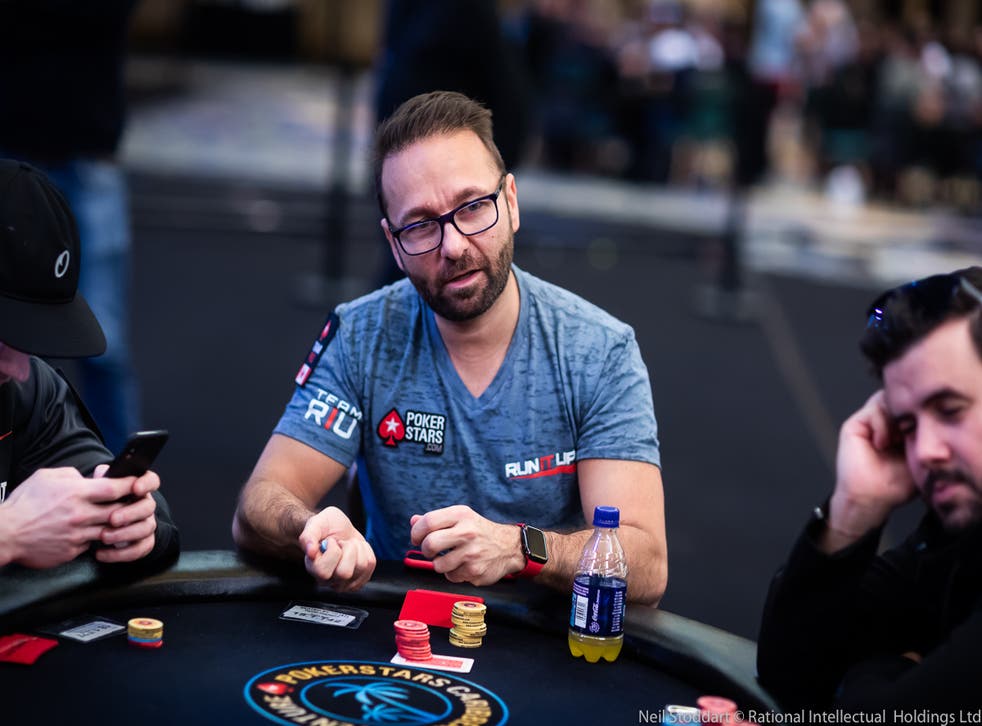How To Become A Better Poker Tournament Player

So, for new tournament players, a good default strategy is to start out tightly during the first few levels. As the tourney continues, open up your ranges, by at least double during each phase of play. For Texas Hold'em tournament strategy, there exists a whole set of other poker tournament tips. While there are many things that add up to good poker strategy, we feel that these are the Top Five for new.
Being a successful poker player requires much more than learning strategy and establishing a solid theoretical base. Once you have studied the game and reached a good skill level, you will still need to work more than others — especially others who are good poker players, too — to develop an edge and be able to crush them.
Some of the habits you should have go much further than the poker tables. It is essential to have a balanced life and mind in order to achieve your goals as a poker player.
Here are some of my recommendations to those wanting to go further than just to learn the technical aspects of winning strategy — 14 tips to becoming a better poker player.
1. Eat a healthy diet
Eating a healthy diet before and during your poker sessions will help with your focus and your performance. Heavy food may make you feel tired and distracted. Choose options that are lighter and better for you.
2. Sleep well

A lack of sleep can cause irritation, increase your chances of being distracted, and generally disrupt your thinking.
3. Work out
Besides being a healthy habit to have, working out regularly will help you sleep better, enable you to have better control over your moods and emotions, and ensure you feel fresh during a long poker session.
4. Practice yoga or meditation
To be able to control your emotions during a poker game, you must have a well-trained mind. Yoga and/or meditation might help you to become 'tiltless' — or at least to be able to avoid tilt on a more frequent basis.
5. Take breaks
You should always take breaks during your sessions. Walk a little bit, stretch, drink water, and clear your mind. Your focus and performance when you return to the table will improve.
6. Avoid alcohol
Your thinking process will be hightly affected if you play hungover or drunk.
7. Stay off your phone
Staying glued to your phone during a session means that you are not paying attention to details such as potential tells and other information available to you as hands are playing out. Every bit of information you can gather about your opponents is valuable and will help you to make profitable decisions.
8. Review your session
Take time after you play to work on your leaks. The best way do to it is to make notes regarding any doubtful moments that come up during your session and review those decisions later.
9. Table selection
You should be thoughtful when selecting the tables before you take a seat. Don't just jump into a game without at least taking a look at who you're playing against, and try to avoid joining games in which you are going to be without too much of an edge.
10. Take a day off
The human brain is not a machine. You can't just turn it on and leave it running endlessly without fatigue setting in. Playing more does not necessarily translate to profiting more. Give yourself some free time to have fun away from the tables. That will keep you motivated and playing well when you return to the games.
11. Practice smart bankroll managment
You must play according to your bankroll limits. It is very difficult to make the best decisions in a given hand or session when you are worrying about the possibility of busting your bankroll.
12. Don't chase losses
On a related note, if you are feeling 'stuck,' remember that only means you've lost a few hands. That's all. Don't think too much about being 'down' in a given session, which really is just an arbitrary way of keeping track of hands played.
The only 'session' that really matters is your lifetime session, the one that started a long time ago and will be continuing tomorrow. You shouldn't be trying to reach some 'peak' with your profit, or to get even or play a certain number of hands before leaving. Don't stay in bad games, and don't stay if you aren't playing your A-game, either.
13. Keep a strong mindset

How often do you think you are unlucky or that things are unfair? Don't be results oriented. A strong mindset will help you keep looking forward and be less stressed.
14. Be mindful of your table presence
You don't want to be seen as the 'reg' with whom nobody wants to play, not even the 'fishes.' Learn to talk to people and socialize. Don't come to the table all wrapped up in a cocoon like the typical poker player wearing a hat, sunglasses, scarf, and headphones. Strike a balance between being friendly at the table but still paying attention and not giving away information.
I am sure if you follow some or all of those tips, your performance will improve a lot at the tables. Keep crushing and good luck!
Primarily an online player, 888poker Ambassador Vivian 'Vivi' Saliba has recently collected numerous live cashes including making the money in both the 2017 WSOP Main Event and 2017 WSOP Europe Main Event. Pot-limit Omaha is her favorite variant, and among her many PLO scores is an 11th place in the $10,000 Pot-Limit Omaha 8-Handed Championship at the 2017 WSOP.
Tags
cash game strategytournament strategyonline pokerlive pokerVivian Saliba888pokerbankroll managementmental gamepsychologytiltgame selectionRelated Room
888pokerRelated Tournaments
888PokerRelated Players
Vivian Saliba
Have you ever watched a Grosvenor Poker stream and thought how easy it looks? After all, you just need to have a strategy and a bit of luck on your side and you’re on to a winner, right? Well, not quite.
Away from the glitz and glamour of the studios and TV cameras (we’re looking at you, Mr Kassouf), the life of a poker professional can be a stressful one. Really, really, stressful.
Think you’ve got what it takes to be a professional poker player? Here’s just a handful of the essentials you will need to consistently crush at the felt.

Mental toughness
One of the most important skills a professional poker player must possess is exhibiting mental resolve at the table. Even the best poker players in the world lose big pots and make bad plays from time to time. It’s the nature of the game.
The difference for pros is that they can ride the swings; something which many players naturally find unnerving. Learning how to bounce back when things aren’t going your way is an essential element of not just being a pro, but surviving as one. You will also have to utilise this mental strength when analysing hands, studying your opponents, and considering new tactics – all of which take time and dedication.
Bankroll management
To survive and eventually thrive as a professional poker player, you need to take bankroll management extremely seriously. The best way to approach poker in this respect is to treat it like a business. This means you should only use money that you can afford to lose to make up your bankroll – no sneaking money out to pay for bills or drinks behind the bar. Solid management also means never playing stakes which heavily eat into your bankroll. A good rule of thumb is to stick to stakes which are 1 per cent of your total bankroll. This will give you a nice cushion for when you lose or get those sick beats.
How To Become A Better Poker Tournament Players Championship
Effective bankroll management also means being honest to yourself. Be truthful about your skill level and only enter games that are below or equal to your ability. Wasting your time on expensive games with lots of experienced players could be disastrous for your bankroll.
Be a ‘professional’
Being a professional poker player also means being smart. And, while this may sound obvious (poker players are smart people, after all!) it is something which should be considered anytime you approach a table or ponder a decision.
This means selecting the correct tables, knowing your opponents (e.g. the inexperienced players you can target), having a fantastic awareness of your table image and, finally, minimising risks. The latter is particularly important, as folding when you know you’re beat and avoiding pots where you have weak hands could save huge chunks of your bankroll in the long run.
Practice makes perfect

You can do plenty of research into how to play poker, but the best way to learn is by playing the game itself.
We offer plenty of opportunities for you to perfect your game and we hold a number of events all over the country that will enable you to get the practice you need in order to make it a poker professional.
Our bigger events include Goliath, which is held annually at the Ricoh Arena and the main event has a buy in of just £125.
This year’s winner turned his buy in into £85,670 and he was one of 6,385 entries. For more information on the event, click here.
Grosvenor also holds the £120,000 GCOOP event, with the week-long event taking place between Sunday 25th November and Sunday 2nd December.
Buy-ins can be from as little as £5 depending on the event, and for more information, click here.
Most successful Poker players
There is a lot of debate about who is the most talented poker players, but here is a list of those who have been most successful in 2018
How To Play Poker Better
1 – Daniel Negreanu – $34,151,32 – Negreanu was name the Global Poker Index player of the decade such is his consistent performances.
2 – Erik Seidel – $33,333,457 – Seidel began his poker career before the internet poker boom and initially made a name for himself way back in 1988 with a second-placed finish in the WSOP event
3 – Antonio Esfandiari – $27,096,274 – The Iranian has made six-figure returns every single year since 2004.
4 – Fedor Holz – $26,746,838 – The German youngster enjoyed a stellar 2016 and won his first World Series of Poker and has continued to produce big results since to propel him into being ranked number 7 in the Global Player Index.
5 – Phil Ivery – $23,466,348 – Dubbed the Tiger Woods of Poker, Ivey won his first tournament back in 2000 and became the first two-time winner of the WSOP Main Event in 2012.
Health and wellbeing
If you follow Daniel Negreanu on Twitter, you’ll know the importance of health and wellbeing all too well in the poker arena.
During huge tournaments that span many days, such as Goliath, it is paramount that you stay alert and remain sharp. This will allow you to make sensible and rational decisions at the table. Staying fresh will also help you to immerse yourself in the game and keep boredom at bay.
As you’ll be aware, poker games are frustrating when you haven’t played a pot in a while and have been sat at the table for hours. If this sounds like you, just get up, walk around and reset the batteries. Taking that extra couple of minutes away from the table could mean the difference between making a big or bad call.
Do you plan on becoming a professional poker player? What do you think are the most important factors to consider before making poker your profession? Let us know in the comments section, below.
Fancy giving poker a try, you can do so here.
Comments
comments